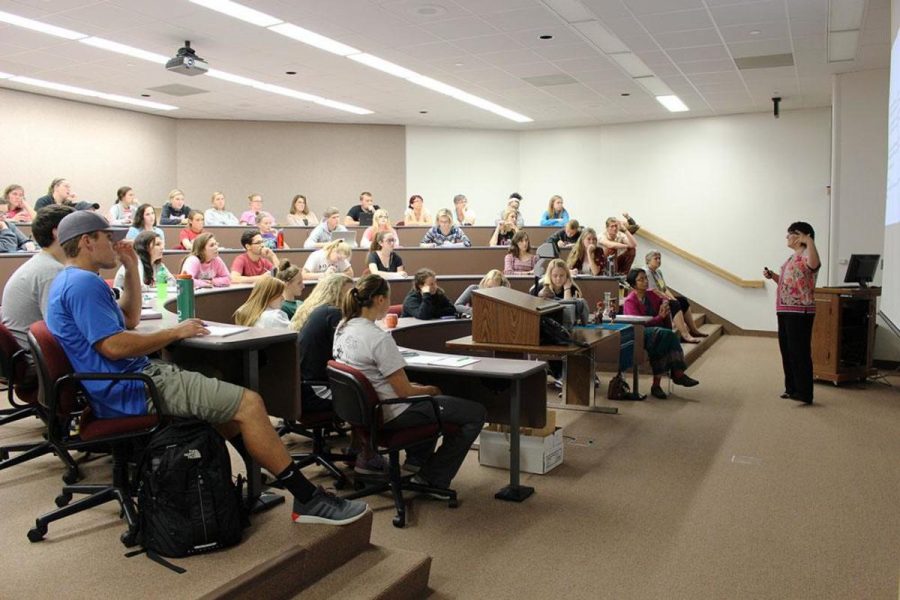Two worlds, one life
Mytzy Rodriguez-Kufner discusses growing up in two different cultures
Mytzy Rodriquez-Kufner talks to Wayne State College students about her adventures of living in two countries.
September 23, 2015
Mytzy Rodriguez-Kufner grew up in two different worlds.
It was a packed house in room 108 of Gardner Hall on Tuesday as Rodriguez-Kufner presented “Bicultural Upbringing: A Celebration of Hispanic Heritage Month.”
She explained that being bicultural is when one person expresses cultural attitudes of two nations or ethnic groups, thus living in two different worlds.
Rodriguez-Kufner, a bicultural person herself, left her home country of Peru when she was five.
Rodriguez-Kufner went into detail about the rich heritage of Peru and the many different traditions that they have there.
“There are some places in Peru that are older than Mesopotamia” Rodriguez-Kufner said, when describing the ancient period of Peru.
She illustrated the differences between Peruvian and American cities. For instance, how many Peruvian cities have plazas which serve as a meeting place for people but also serve as a safe place for people during earthquakes because there are no tall buildings in the plazas.
Of course, there are many similarities between the two countries’ cities, like the prevalence of Apple stores.
The transition from Peru to America was interesting for her.
Rodriguez-Kufner left Peru during the blizzard of 1979, and she described how her first meal in the United States was a McDonald’s Happy Meal.
She talked about how when she returned to Peru, her cousins would make fun of her for sounding like her Spanish had been “Americanized.”
Though Peruvian, Rodriguez-Kufner is a Midwesterner at heart, growing up in the Chicago area.
In fact, most of her friends were of Irish decent. While in college she tried to find her Peruvian heritage by joining multiple clubs.
As she was working as a bicultural teacher, she experienced racism in her work life for the first time.
“I never tell people I am from Peru because I don’t want to be treated better than my Latino counterparts,” Rodriguez-Kufner said.
Growing up as a bicultural person affects her views on the world issues.
“It taught me to be more tolerant, I gravitate more toward seeing issues from both sides and often try to think, if I was in that persons shoes, how would I feel?” Rodriguez-Kufner said. “I am a product of two worlds, and I know how to navigate in each, but because of who I am, I do not perceive myself to be 100 percent white and I do not perceive myself as 100 percent Peruvian.”







